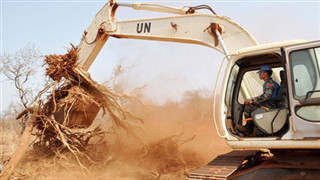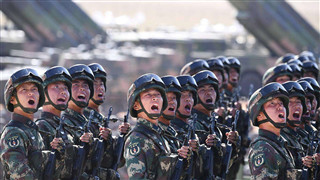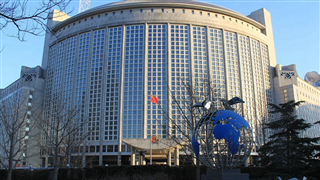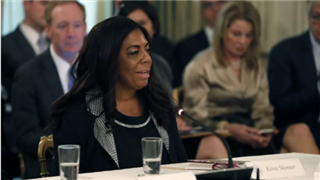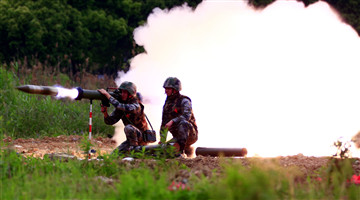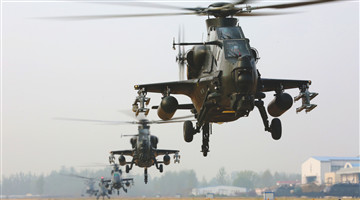US National Security Adviser John Bolton said recently that Washington is deploying the USS Abraham Lincoln Aircraft Carrier Strike Group and a bomber task force to the Middle East in response to Iran’s recent “indications and warnings” against the US, which casts another shadow over the growing tension between the US and Iran.
Washington has raised its threatening rhetoric to Iran over recent months since the US unilateral withdrawal from the Iran nuclear deal in May 2018. On April 8, 2019, the US designated Iran’s elite Revolutionary Guard Corps as a foreign terrorist group, indicating that the US would take necessary means to deter and undermine its organizations and activities, and would impose sanctions against any individual or organization that has economic ties with the Iranian Revolutionary Guard Corps. On May 3, the US imposed a third wave of sanctions on Iran’s nuclear activities — ending two exemptions for civilian nuclear facilities to eliminate Iran’s possibility of acquiring nuclear weapons again. Iran, for its part, has taken an uncompromising posture.
The motive of the US high-profile announcement to deploy the USS Aircraft Carrier Strike Group to the Middle East is to send two clear and unmistakable signals.
First, the US intends to renew its strong strike power in the Middle East. After taking office, US President Donald Trump has reduced the US military presence in the Gulf region by withdrawing vessels, aircraft and missiles that are imperative in large-scale confrontations. The US has not deployed any aircraft carrier in the Middle East ever since. The return of the USS Abraham Lincoln Aircraft Carrier Strike Group is to show that the US attaches great importance to and possesses strong power in controlling the region.
Second, the US wants to increase its military deterrence against Iran. Judging from the current situation, the US has not achieved its expected results. Iran’s operation remains as usual relying on its abundant oil resources, despite measures taken by the US against it including diplomatic isolation and economic suppression, while such move has sparked unprecedented anti-American sentiment in Iran. To that end, the US side needs to consider further military deterrence. The aircraft carrier USS Abraham Lincoln has just been refitted in the US before its deployment to the Middle East. Almost at the same time, another aircraft carrier USS John C. Stennis (CVN-74) also appeared in the Red Sea, forming a battle group with several destroyers and cruisers and conducting large-scale exercise with French aircraft carrier Charles de Gaulle (R91). Such moves intended to send a psychological shock to Iran in referring to the 2017 US crackdown on Syria.
However, judging by the actual situation, the signals that the US intends to send this time may not meet its expectation.
First of all, it is difficult to reconcile the conflict between the United States and Iran, and excessive suppression will only trigger higher anti-American sentiment in Iran. Earlier, Iran’s supreme leader, Ayatollah Ali Khamenei, asked the whole nation to respond to the US offensives in various fields in a “combat posture”. Senior officials including the Iranian Foreign Minister and the Chief of Staff of the Armed Forces have said that Iran is considering taking a series of countermeasures, such as withdrawing from the Treaty on the Non-Proliferation of Nuclear Weapons (NPT), or blocking the Strait of Hormuz. Since Iran is an important country in the Middle East, the escalation of the US-Iran confrontation will inevitably bring tensions throughout the Persian Gulf and even the Middle East.
In addition, Russia-Iran relations will be closer. Although Russia and Iran have historically conflicted over the issue of territorial expansion, the two countries have in recent years begun to strengthen alliances and support each other at certain levels. For example, Russia supports the Iran nuclear deal, helps Iran build nuclear power plants, and conducts long-term cooperation with Iran on oil-for-goods deal; in return, Iran has helped Russia ease political and economic pressure from the Crimean and Syrian wars. The increase of the US military deterrence will only push Iran towards Russia further, and Russia will also be willing to lend a helping hand to Iran to expand its influence in the Middle East. This relation may potentially impede a series of actions imposed by the US in the Middle East.
(The author is Fang Xiaozhi, a researcher at the BRI Institute of Strategy and International Security, Fudan University. )
